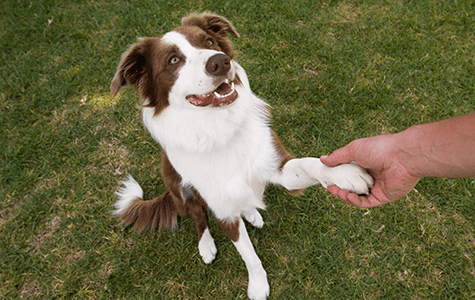Is Your Dog a Brain Health Wellness Coach?
Do you own a Labradoodle, French Bulldog or good ole, mutt? No matter what the breed, at the end of your leash, stands your own furry, wet-nosed brain health wellness coach. Sure, you probably already know your pup provides unconditional love, warm snuggles and good reasons to get off the couch, but did you know science too, supports the notion that dogs (and cats too!) are good for your overall health and well-being, including brain health?

Puppy Power for People
In a 12 year study involving more than 3.4 million people, dog owners who lived alone had a lower risk of stroke, heart attack and heart disease than people living alone in households without dogs. Owning a dog was also related to a lower risk for cardiovascular disease and other causes of death in the general population.
How do dogs help?
Good cardiovascular health means a healthy supply of blood flow and oxygen to the brain, which helps reduce the risk of dementia and improve memory and thinking skills. Staying active, reducing stress, feeling happy and connected can help ward off dementia, too.
Anyone owning a dog knows, big imploring eyes, wagging tails and begging and barking shenanigans can motivate humans to:
- Exercise. Walking dogs or taking them to the park to play gets us moving. And regular exercise helps decrease blood pressure and cholesterol levels and increases oxygen and blood flow to the brain. A study of more than 2,000 adults conducted by the National Institutes of Health showed that dog owners who regularly walked their dogs were more likely to be physically active and less likely to be obese. “Wanna go for a walk?!”
- Reduce stress. Simply petting a dog can lower your blood pressure and heart rate and increase levels of serotonin and dopamine; the “happy” brain chemicals that release feelings of pleasure and calm. Call it “puppy love”.
- Feel less lonely. Having a dog has been shown to reduce depression. Walking with a dog or taking your dog to the park can lead to more social connection with others. People with more social relationships tend to live longer and are less likely to show mental and physical decline as they age. “To err is human, forgive- canine.”
Aaron Ritter,MD, neuropsychiatrist and our Director of Clinical Trials at Cleveland Clinic Nevada, encompasses many health benefits from walking with his “pack”. “I walk my dogs two times a day for a total of 2-3 miles. Having eager and dependent exercise partners ensures that I cannot skip days, even when I an tired or it’s hot. The exercise and meaningful companionship help keep me happy and healthy.”
For more information on how having a pet can benefit your health, visit healthybrains.org/pillar-social.









